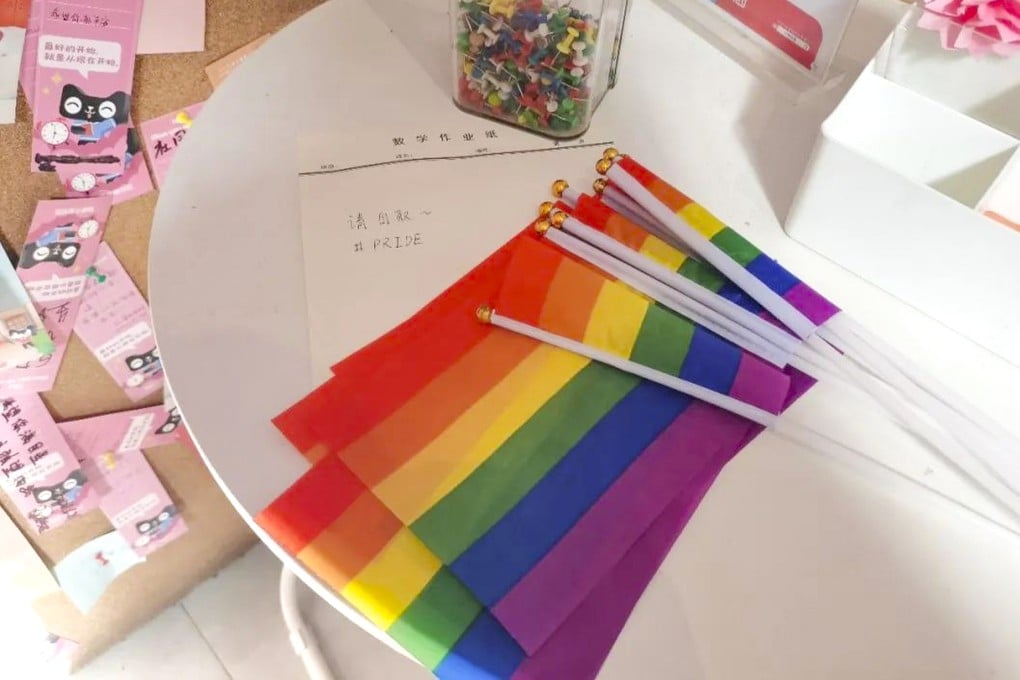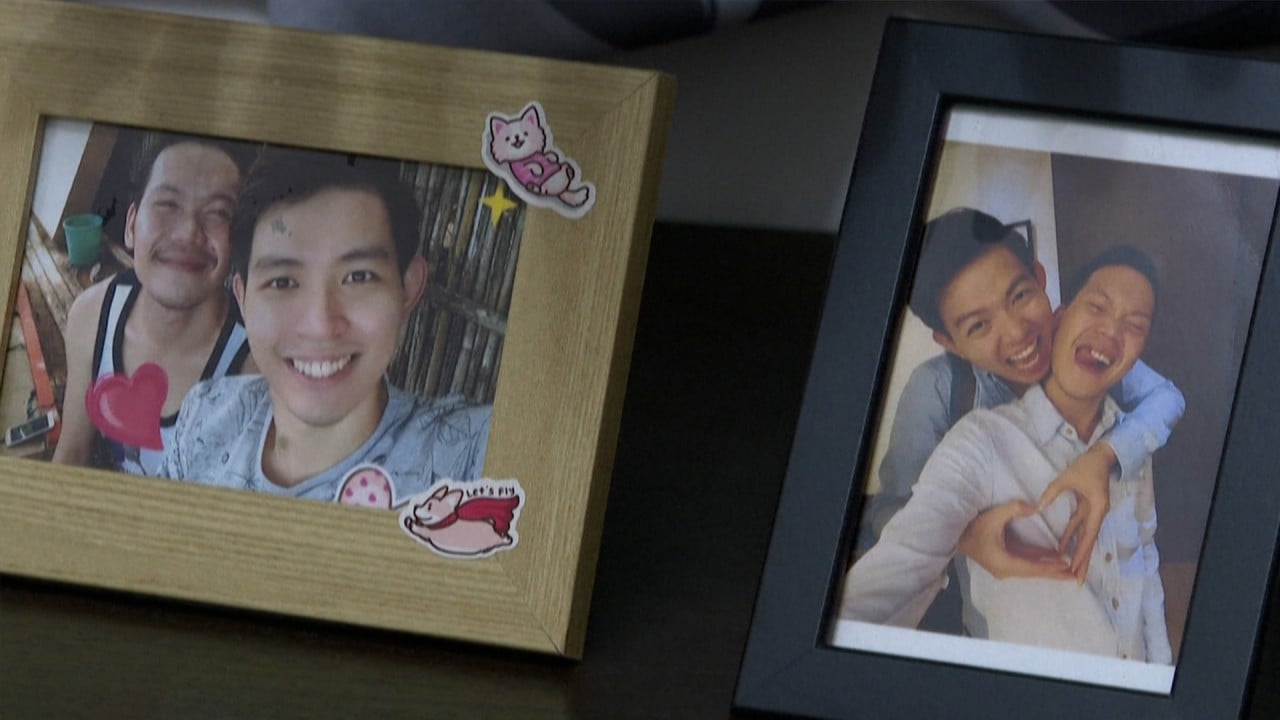Chinese students vow to fight penalty for distributing rainbow flags at Tsinghua University
- Women say they were disciplined by student affairs office for leaving 10 rainbow flags, symbols of the LGBT movement, behind campus supermarket counter
- At Peking University, students were called to remove rainbow-coloured masks on International Day Against Homophobia, Biphobia and Transphobia

Two female students at China’s prestigious Tsinghua University who were disciplined last week for distributing rainbow flags on campus are petitioning to have the penalty overturned, despite facing a risk of dismissal.
Christine Huang and another student, who did not want to be identified, were issued with warning letters on Friday and Sunday, respectively, by Tsinghua’s student affairs office for distributing unauthorised promotional material on campus.
According to Huang, they left 10 rainbow flags behind the counter of a campus supermarket in mid-May. They were then tracked with the aid of campus surveillance cameras and ordered to have talks with university administrators.
“We felt that it was necessary to raise the visibility of the rainbow, especially in such a time like this. The rainbow is not just a token,” Huang said.
The disciplinary action, coming after Pride Month in June, is the latest in an intensifying campaign targeting mainland LGBT communities. Last year, the social media accounts of dozens of LGBT student organisations were shut down.
After the talks with student supervisors, the two were accused of violating campus regulations, breaches that could lead to disciplinary action and the possibility of dismissal. Last month, Huang and her co-accused received written warnings and were given five days to respond.
